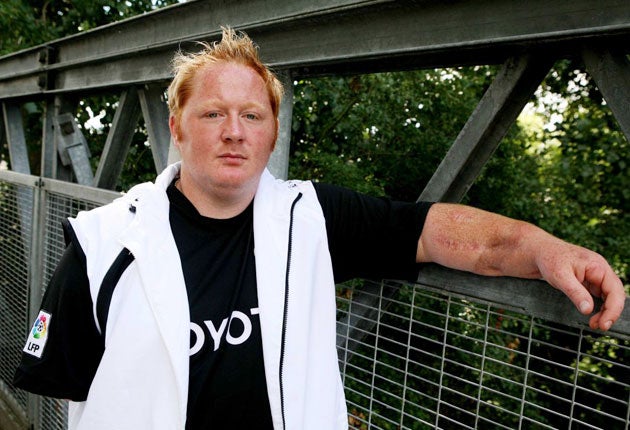Top officer's calls for mental tests ignored
Colonel's report on formal assessments for injured soldiers is filed away

Your support helps us to tell the story
From reproductive rights to climate change to Big Tech, The Independent is on the ground when the story is developing. Whether it's investigating the financials of Elon Musk's pro-Trump PAC or producing our latest documentary, 'The A Word', which shines a light on the American women fighting for reproductive rights, we know how important it is to parse out the facts from the messaging.
At such a critical moment in US history, we need reporters on the ground. Your donation allows us to keep sending journalists to speak to both sides of the story.
The Independent is trusted by Americans across the entire political spectrum. And unlike many other quality news outlets, we choose not to lock Americans out of our reporting and analysis with paywalls. We believe quality journalism should be available to everyone, paid for by those who can afford it.
Your support makes all the difference.Urgent calls by a senior army officer that there should be targeted psychological assessment for seriously wounded soldiers returning from Afghanistan have been ignored for 18 months.
In an internal document dated November 2007, Lt-Col Andrew Whiteley called for immediate action to deal with the mental anguish of troops suffering from horrendous wounds, but his appeal was met with a "deafening silence".
In 2007, during one of the bloodiest tours of Helmand, Lt-Col Whiteley, a senior officer in charge of welfare for 12 Mechanised Brigade, conducted a study on the psychological impact of trauma injuries. In his report he recommended that: "A systematic approach to the early diagnosis of mental health problems in service personnel who have suffered trauma injury is introduced as a matter of urgency."
While the document commended the physical care given to men returning with amputations, burns or gunshot wounds, it found that little was being done to handle the mental devastation of such life-changing injuries – in contrast to American procedures.
It pointed out that there did not appear to be a system of formal mental health assessment for wounded soldiers, or any UK research into the mental impact of such injuries.
Lt-Col Whiteley wrote that as many as 10 per cent of British soldiers returning from Iraq and Afghanistan would develop mental health problems.
The report was passed to the Deputy Chief of Staff, then Major Neil Allison, and to the headquarters of 3rd (UK) Mechanised Division for "action". But no system was implemented. It appears the report has simply been filed away.
"From the response I had while writing it, I doubt it was ever taken any further," Lt-Col Whiteley told The Independent. "The fact is the UK MoD [Ministry of Defence] had been in denial about this issue since the Falklands."
Lt-Col Whiteley, who was a reservist at the time of the report and has since left the forces, said: "There are regular examinations but it is all on the physical side. There is no medical health screening programme. It is up to the individual soldier or family. I feel very strongly there should be mandatory screening and regular, frequent checks."
An MoD spokesman said that all seriously injured servicemen and women were assessed for their physical and psychological needs at facilities in the UK, at Selly Oak and the Defence Medical Rehabilitation Centre at Headley Court, and received anxiety and depression assessment as well as more specialist care if required. The ministry said that while reports such as the one by Lt Col Whiteley were welcomed, they were not always reacted to as it chose to take an ongoing proactive approach to care of the injured.
Case study: 'There is no place to go'
Lance Corporal Mark Dryden was serving in Basra, southern Iraq, with the 1st Battalion, The Royal Regiment of Fusiliers, when on 20 November 2005 a roadside bomb tore through his armoured Land Rover, killing his friend Sgt John Jones and leaving him an amputee.
Back in the UK, he suffered nightmares, flashbacks, paranoia and mood swings and he contemplated suicide. It took a year before he was diagnosed with post-traumatic stress disorder, and a further four months before he was visited by a mental health nurse.
He said the Army catered for his physical injuries but not his mental ones. Today, Cpl Dryden, 31, who has been medically discharged from the Army, has started to rebuild his life and is taking a sports psychology degree. He still struggles with his mental wounds but, as a veteran, he is no longer the responsibility of the Army and must seek help from the NHS. He said: "Where do you go? For soldiers who have been in Iraq and Afghanistan, there is no place. I could go to my GP but he'll just give me Prozac."
Join our commenting forum
Join thought-provoking conversations, follow other Independent readers and see their replies
Comments